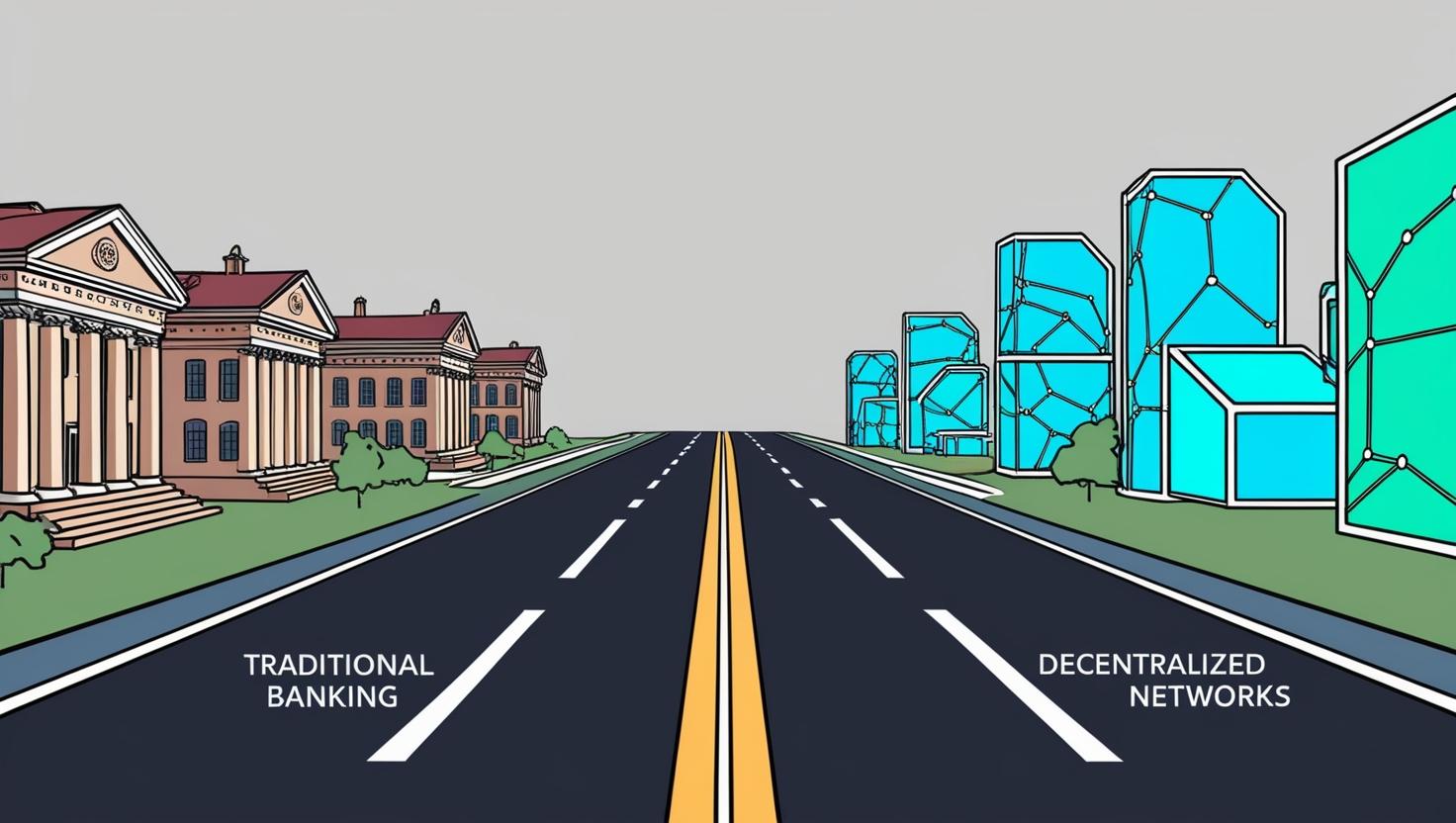05-02-2025
Cryptocurrency & Digital Assets
The Future of Decentralized Finance (DeFi) and Its Impact on Traditional Banking
Decentralized Finance (DeFi) is revolutionizing the financial industry by providing an alternative to traditional banking systems. Powered by blockchain technology and smart contracts, DeFi enables financial transactions without the need for intermediaries, such as banks or brokers. This article explores the rise of DeFi, its key components, benefits, challenges, and its potential impact on the future of finance.
Understanding Decentralized Finance (DeFi)
DeFi is an umbrella term for financial applications built on blockchain networks that operate without centralized intermediaries. Instead of relying on traditional banks, DeFi leverages smart contracts on decentralized platforms to offer financial services such as lending, borrowing, trading, and insurance.
Key Components of DeFi
- Decentralized Exchanges (DEXs)
- Platforms like Uniswap, SushiSwap, and PancakeSwap facilitate peer-to-peer crypto trading without the need for intermediaries.
- Users maintain full control of their funds while enjoying lower fees and increased transparency.
- Lending and Borrowing Protocols
- Platforms such as Aave, Compound, and MakerDAO allow users to lend and borrow assets using smart contracts.
- Collateralized loans eliminate the need for credit checks, making financial services more accessible.
- Stablecoins
- Digital assets like DAI, USDT, and USDC are pegged to traditional fiat currencies, reducing volatility and enabling reliable transactions.
- Yield Farming and Staking
- Users can earn rewards by providing liquidity to DeFi protocols or staking their assets to support network operations.
- Platforms like Yearn.Finance and Curve Finance optimize yield farming strategies for users.
- Insurance Protocols
- Decentralized insurance providers like Nexus Mutual and Cover Protocol offer protection against smart contract failures and hacks.
Advantages of DeFi Over Traditional Banking
- Financial Inclusion: DeFi opens up access to banking services for millions of unbanked individuals worldwide.
- Transparency: Blockchain technology ensures all transactions are recorded on a public ledger, reducing fraud and corruption.
- Lower Costs: DeFi eliminates middlemen, resulting in lower transaction fees and higher yields for investors.
- 24/7 Accessibility: Unlike traditional banks, DeFi operates continuously without downtime or restrictions.
Challenges and Risks of DeFi
Despite its advantages, DeFi faces several challenges:
- Regulatory Uncertainty: Governments worldwide are still grappling with how to regulate DeFi platforms.
- Smart Contract Vulnerabilities: Coding flaws and security loopholes can be exploited by hackers.
- Market Volatility: Many DeFi tokens experience significant price fluctuations, increasing investment risks.
- Scalability Issues: High transaction fees and slow processing times remain challenges on networks like Ethereum.
The Future of DeFi and Traditional Banking
The rise of DeFi poses both opportunities and threats to traditional banking institutions:
- Collaboration vs. Competition: Some banks are exploring blockchain integration, while others view DeFi as a disruptive force.
- Adoption of Hybrid Models: Centralized finance (CeFi) and DeFi may converge, offering users the best of both worlds.
- Increased Regulation: Governments will likely implement legal frameworks to ensure consumer protection without stifling innovation.
- Mainstream Adoption: As DeFi platforms improve scalability and security, they may become widely accepted for everyday financial transactions.
Conclusion
Decentralized Finance (DeFi) represents a paradigm shift in how financial services are delivered. While it brings numerous advantages, challenges remain regarding regulation, security, and scalability. As DeFi continues to evolve, it is likely to reshape the financial landscape, providing greater access, transparency, and efficiency in financial transactions.
Source: CoinDesk, "The Rise of DeFi and What It Means for Banking," coindesk.com

